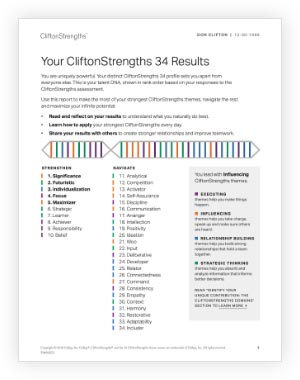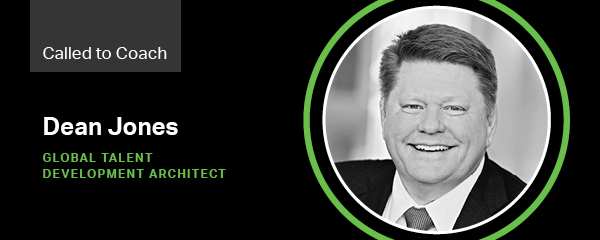Story Highlights
- Career development plans often miss a crucial element: who you are
- Transformative, meaningful career development centers on what you do best
- Find fulfillment by aligning your unique strengths with your daily work
Employees come to work looking for far more than a paycheck. They want a sense of purpose -- and a clear path forward with opportunities to advance and acquire new skill sets.
But too often, people seeking to further their career go looking in the wrong direction. For instance, you might think that becoming the manager is the secret to fulfillment -- or that you can achieve success by fixing your weaknesses.
In reality, transformative, meaningful career development centers on who you are. Your strengths. Your goals. The work that gives you energy.
Trying to mimic others' success won't improve your career or help you find meaning in your work. In fact, it can lead to disengagement and the all-too-common refrain: "I hate my job."
So, how can you ensure your career path leads to meaningful career fulfillment? Gallup's research has uncovered three tactics:
1. Focus on what you enjoy most and do best.
People experience meaningful career growth when they consider what they find enjoyable and why -- rather than chasing after job titles or ladder rungs. In other words, you can chart a path to a more fulfilling career when you align your daily work with your unique strengths.
Gallup has found that employees who know and use their strengths every day have higher energy and greater confidence. They are more likely to achieve goals and are more effective at growing as individuals.
You can start by asking yourself what aspects of your work give you the most (and least) energy. Reflect on why the energizing tasks and conversations come so naturally to you -- why they fuel you. Rather than focusing on fixing areas of weakness, consider how you can lean into your strengths to accomplish the work you'd rather avoid -- or how you might collaborate with partners who have complementary strengths and expertise. Then, consider how you can sharpen your strengths in the workplace and do more of the work you enjoy.
Here's an example: In the last week, did you derive satisfaction from crossing something off your to-do list? That sense of fulfillment from accomplishing tasks is unique to the Achiever theme -- not everyone gets energy from that. Others are uniquely motivated by the opportunity to brainstorm ideas or the challenge of meeting someone new and winning them over.
2. Take initiative in individual development.
Discovering your strengths is just the beginning: Real change takes place when you apply and cultivate them.
But individuals shouldn't passively wait for development to happen -- they should pursue it as a top priority for experiencing greater career fulfillment.
In Gallup's experience, the employees who most effectively grow as individuals don't expect their personal growth to come from periodic conferences or one-size-fits-all certifications. They spearhead their own strengths-based development.
Consistently look for elements of your role that put wind in your sails. Determine why those aspects of your work fuel you. What strengths do they bring out in you? Wherever possible, replicate those moments or challenge yourself to explore them in new ways. That might mean raising your hand for a new type of project or volunteering outside the organization.
3. Engage in discussions with your manager.
Employees who strongly agree they have had conversations with their manager in the past six months about their goals and successes are 2.8 times more likely to be engaged. And ongoing dialogue -- such as Quick Connect or Check-In conversations -- creates a perfect opportunity for setting expectations, review successes and recalibrate priorities.
During these conversations with your manager, ask for feedback. This is a surprisingly powerful approach to self development that can contribute to meaningful performance development. Look for opportunities to discuss your developmental goals and elements of your work that have allowed your strengths to shine bright.
Discovering your strengths is just the beginning: Real change takes place when you apply and cultivate them.
You might think that your "dream job" is a specific title or career trajectory. But employees find the most meaningful career fulfillment not by asking, "What job should I have?" but by asking, "What strengths do I have?" Only then can you find work that allows you to do what you do best, feel energized and develop your full potential.
Love what you do. Do what you do best.
- Not sure what your strengths are? Start here.
- Check out Gallup's ultimate guide to improving your career.




